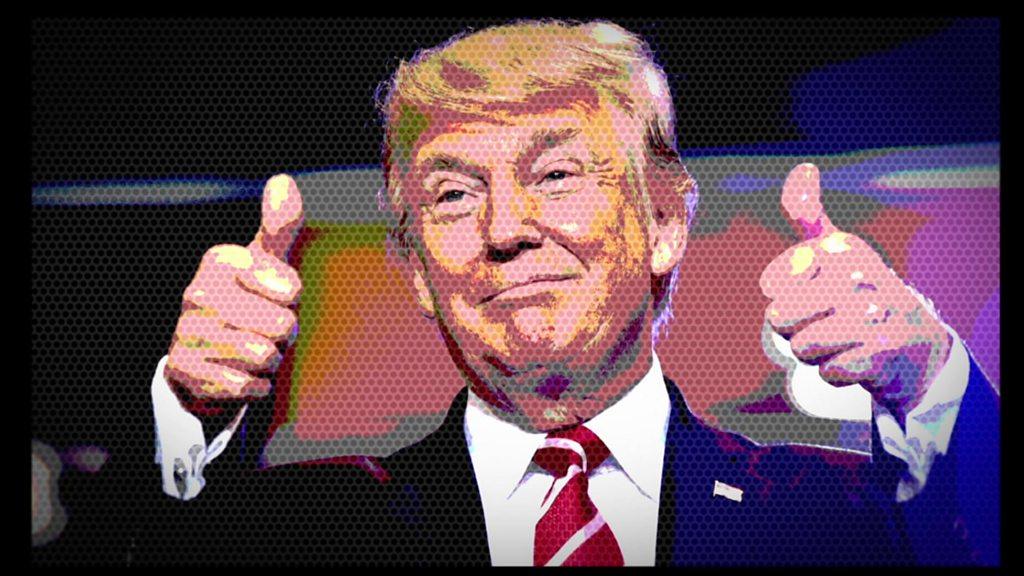Iran nuclear deal: What is it and why are we talking about it?
- Published
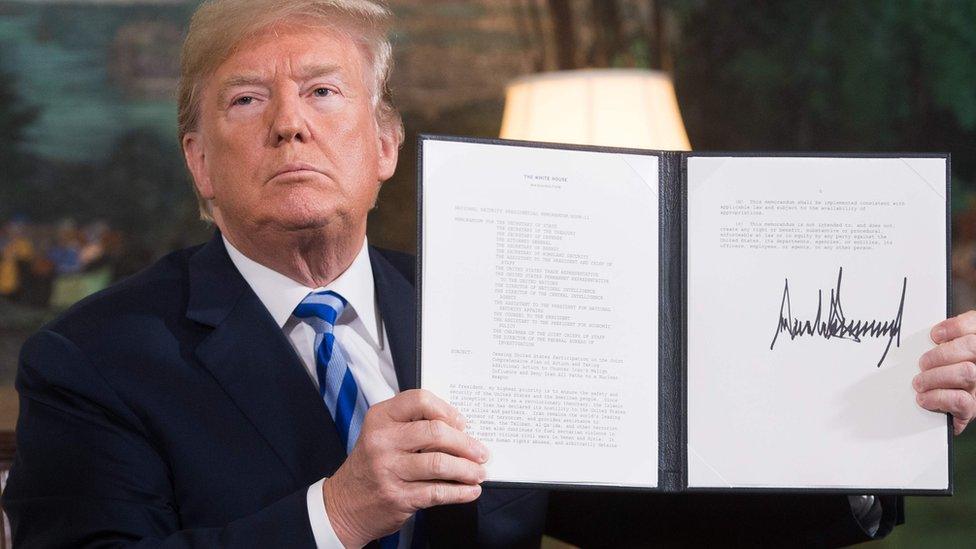
The US - led by President Donald Trump - has pulled out of something known as the Iran deal
The world is talking about something called the Iran nuclear deal.
The deal is a special agreement between the country of Iran and other major world powers - the US, UK, France, China, Russia and Germany.
The agreement spells out what Iran is allowed to do as regards its nuclear programme - that's the scientific steps by which a country develops nuclear power - which could be used to generate energy but which could also lead to the development of nuclear weapons.
But the US - led by President Donald Trump - has just pulled out of it.
So what is the Iran nuclear deal and why is it such a big deal that the US has withdrawn from it?

What is the Iran deal?
Over the years, Iran has not had a very good relationship with many major world powers because they thought Iran was working to build a nuclear weapon.
Even though Iran said its nuclear activities were peaceful many in the international community simply did not believe that.
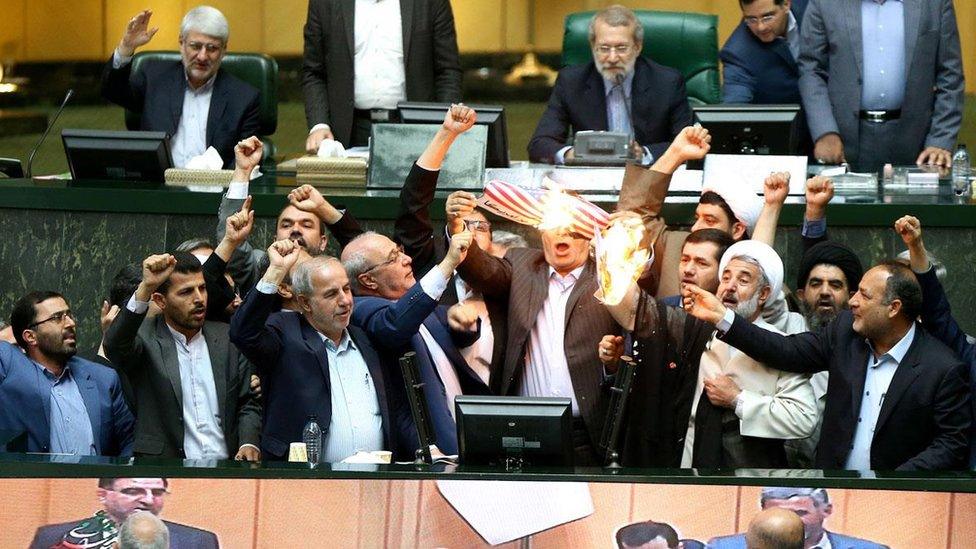
Politicians in Iran have reacted strongly to the US pulling out of the deal. In this picture, we can see some lawmakers burning the US flag in parliament
For 10 years, a worldwide organisation of countries called the United Nations (UN) put rules and restrictions on Iran called sanctions, which were designed to put pressure on Iran to stop developing its nuclear programme by damaging the country's economy.
For example, Iran was stopped from selling oil and natural gas to certain countries, which was a big deal because the country made a lot of money from doing this.
That caused a lot of problems for Iran. When President of Iran Hassan Rouhani came to power in 2013, he said he wanted to improve the country's relationship with the rest of the world and try to improve the economy.
After years of talks, in 2015, President Rouhani agreed a deal called the Joint Comprehensive Plan of Action with six major world powers - the US, UK, France, China, Russia and Germany.
This became known as the Iran nuclear deal.
Countries on both sides of the deal had to agree to certain things.
The UN, US and EU agreed to take away the restrictions put on Iran, but in return, Iran had to stop large parts of its nuclear programme and allow international inspectors to monitor what was going on.
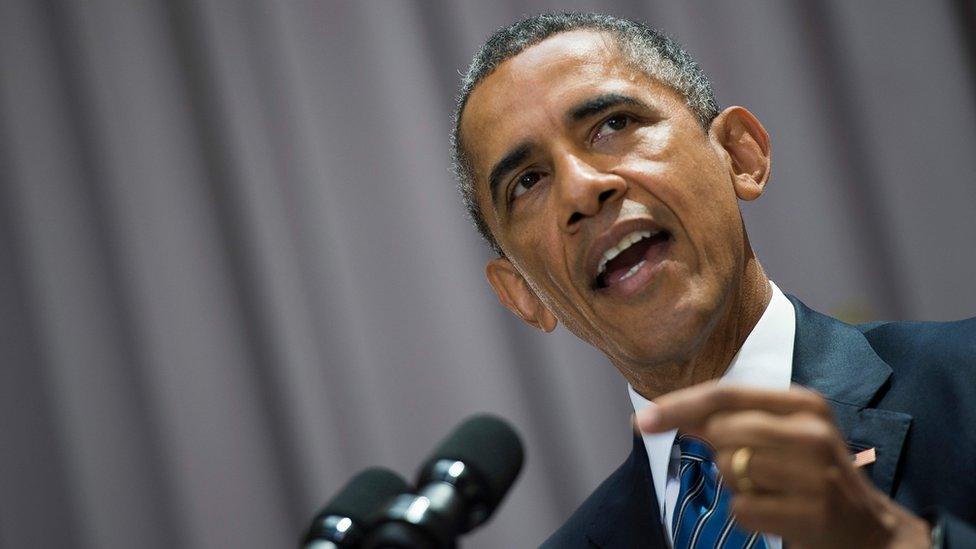
Barack Obama signed the Iran deal on behalf of the US back when he was US president in 2015
At the time the deal was announced, it was described by leaders as a "shared commitment to peace and to join hands in order to make our world safer".

What did everybody think of the deal?
People had different opinions on the Iran deal.
Some weren't happy with it. Some of the reasons for this include:
Important parts of the deal expire after a certain time period.
It doesn't stop Iran from developing powerful military rockets called ballistic missiles. Iran has tested at least five new ones since the deal was reached.
Many are unhappy about the way Iran has become involved in wars in Syria and Yemen.
They don't believe the nuclear inspections and monitoring would be good enough
Israel's Prime Minister Benjamin Netanyahu said the deal was "based on lies" and that Iran couldn't be trusted. He called it a "stunning, historic mistake".
Donald Trump has called it "the worst deal in the world" with "terrible flaws", and has recently described it as "decaying and rotten".
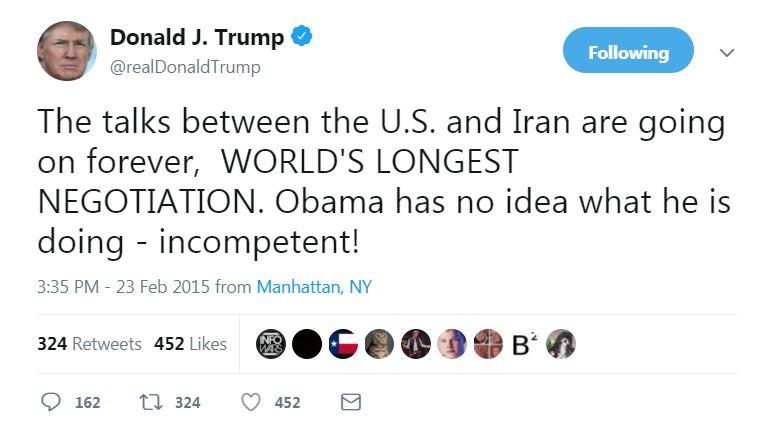
In 2015, when Barack Obama was US President, Donald Trump expressed his feelings on the situation on social media
But others believe that the deal has been a step in the right direction.
While European leaders said that the deal wasn't perfect, they believe it is a step in the right direction and it would not be a good idea to abandon it.
Barack Obama, who signed the deal on behalf of the US when he was US president, said the deal "is working" and that it is a model to show what can be achieved when you hold talks and work with other countries in this way.
He said that the deal "was never intended to solve all of our problems with Iran", but that limiting its nuclear programme was very important. "We have been safer in the years since we achieved the [deal]".

What steps has the US taken?
Now, the US - led by President Donald Trump - has officially pulled out of the Iran deal.
Trump said it was "a horrible, one-sided deal that should have never, ever been made".
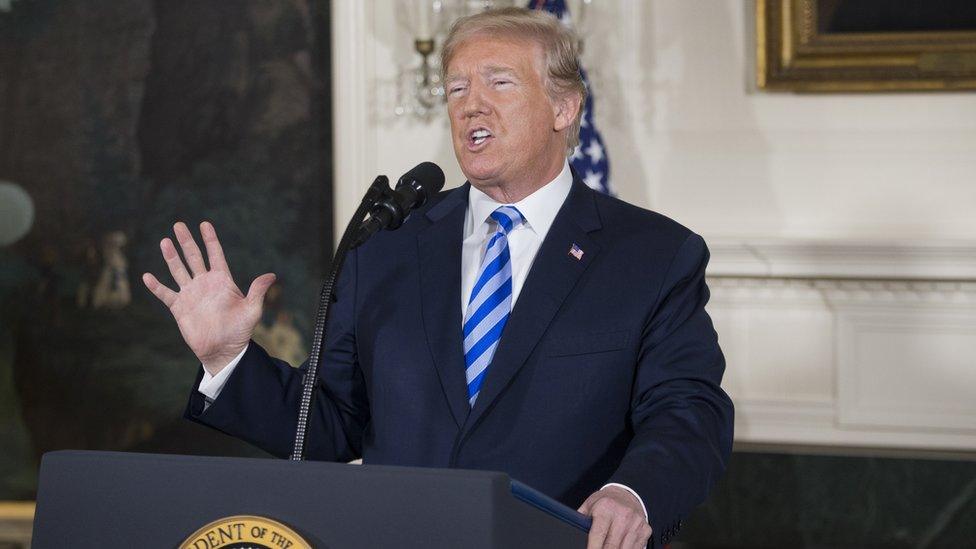
US President Donald Trump made an announcement on 8 May 2018 that the US would be withdrawing from the Iran deal
He says he will put economic sanctions back on Iran, which had been lifted after the nuclear deal was signed.
The US sanctions will cover lots of industries - including transport, oil and banking - and will gradually come back into force over next six months.

How has the world responded?
Barack Obama has said that what President Trump has done is "misguided".
Meanwhile, European leaders - who had tried to persuade President Trump to change his mind - have said they "regret" his decision.
The UK has said it remains committed to the deal and insists that it has left the world "a safer place".
Russia commented that it was "deeply disappointed", while China also expressed regret.
In Iran, many people were sharing the hashtag: #untr_US_table on social media- a play on the word "untrustable".
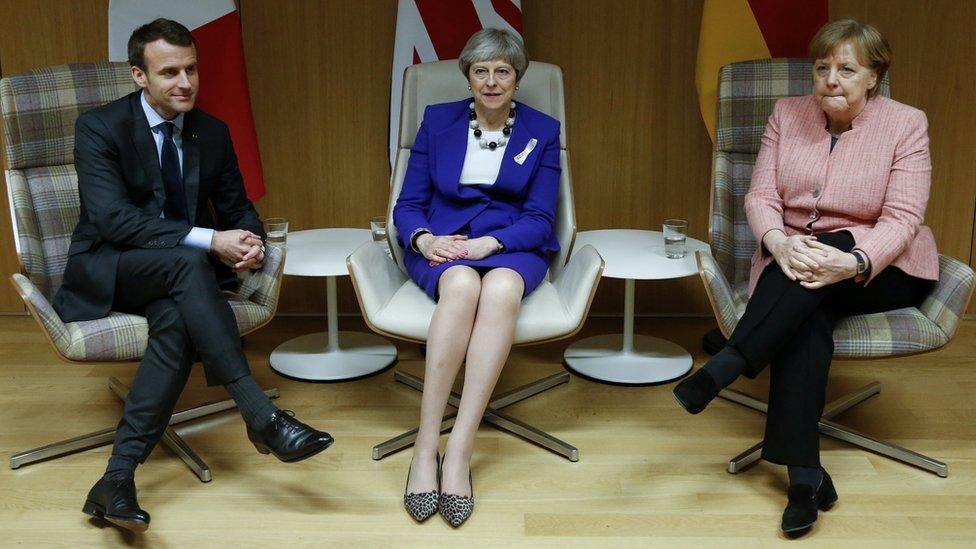
European leaders (in this photo, we see French President Emmanuel Macron, Britain's Prime Minister Theresa May and German Chancellor Angela Merkel) have said they "regret" the decision that the US has made
But the US Ambassador to the UN Nikki Haley said: "The president absolutely made the right decision."
Israel's Prime Minister Benjamin Netanyahu said he "fully supports" and "greatly appreciates" Mr Trump's "bold decision to reject the disastrous nuclear deal".
And Saudi Arabia, which is a rival of Iran, says it "supports and welcomes" what the US has done.

How has Iran responded?
In response to the US pulling out of the agreement, Iran's President Hassan Rouhani said: "The US has announced that it doesn't respect its commitments."
Iran also threatened to start back up some parts of its nuclear programme which it had stopped as part of the deal.
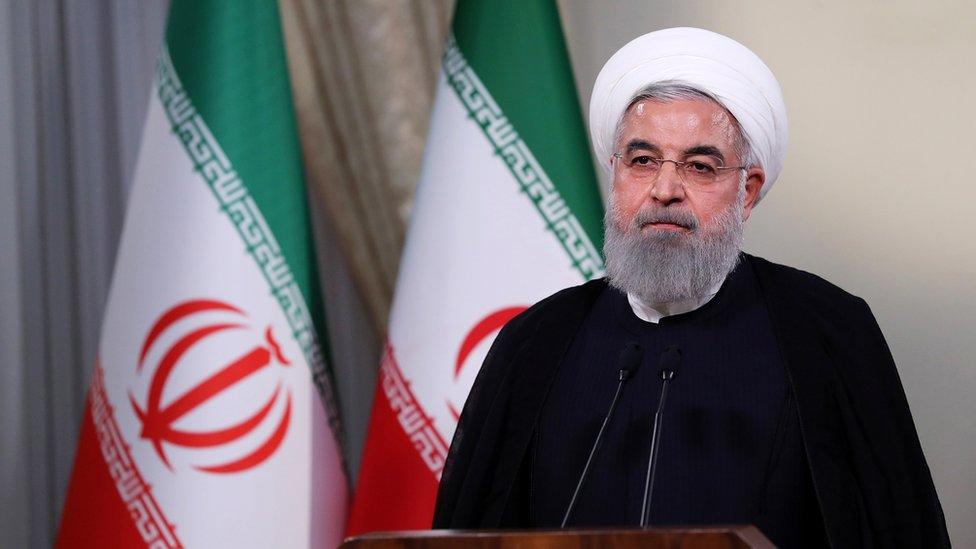
Iranian President Rouhani has said he will talk with other members of the deal about what happens next
However, President Rouhani added he would "wait a few weeks" to speak to other countries which are part of the deal first.

What happens now?
Now the US has pulled out of the deal, this poses some questions for those who are still a part of it.
Do they try to keep the deal as it is by themselves, without the US? Or do they try to make Iran accept new conditions?
Iran has said that if the countries which are still part of the deal try to make it agree to new conditions, Iran will walk away from the deal too.
US Secretary of State Mike Pompeo said: "As we exit the Iran deal, we will be working with our allies to find a real, comprehensive and lasting solution to the Iranian threat."
European leaders have said: "Our governments remain committed to ensuring the agreement is upheld, and will work with all the remaining parties to the deal to ensure this remains the case."
- Published8 January 2020
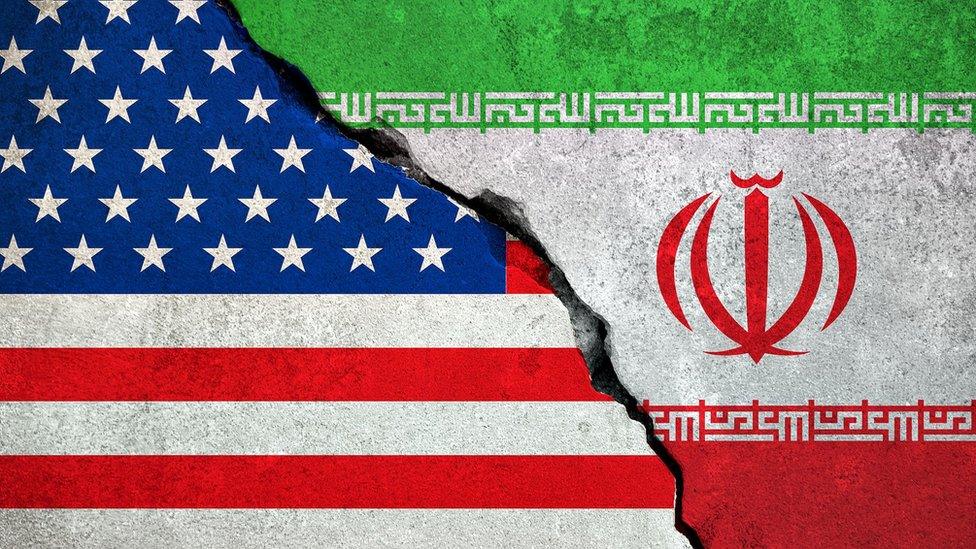
- Published16 October 2019
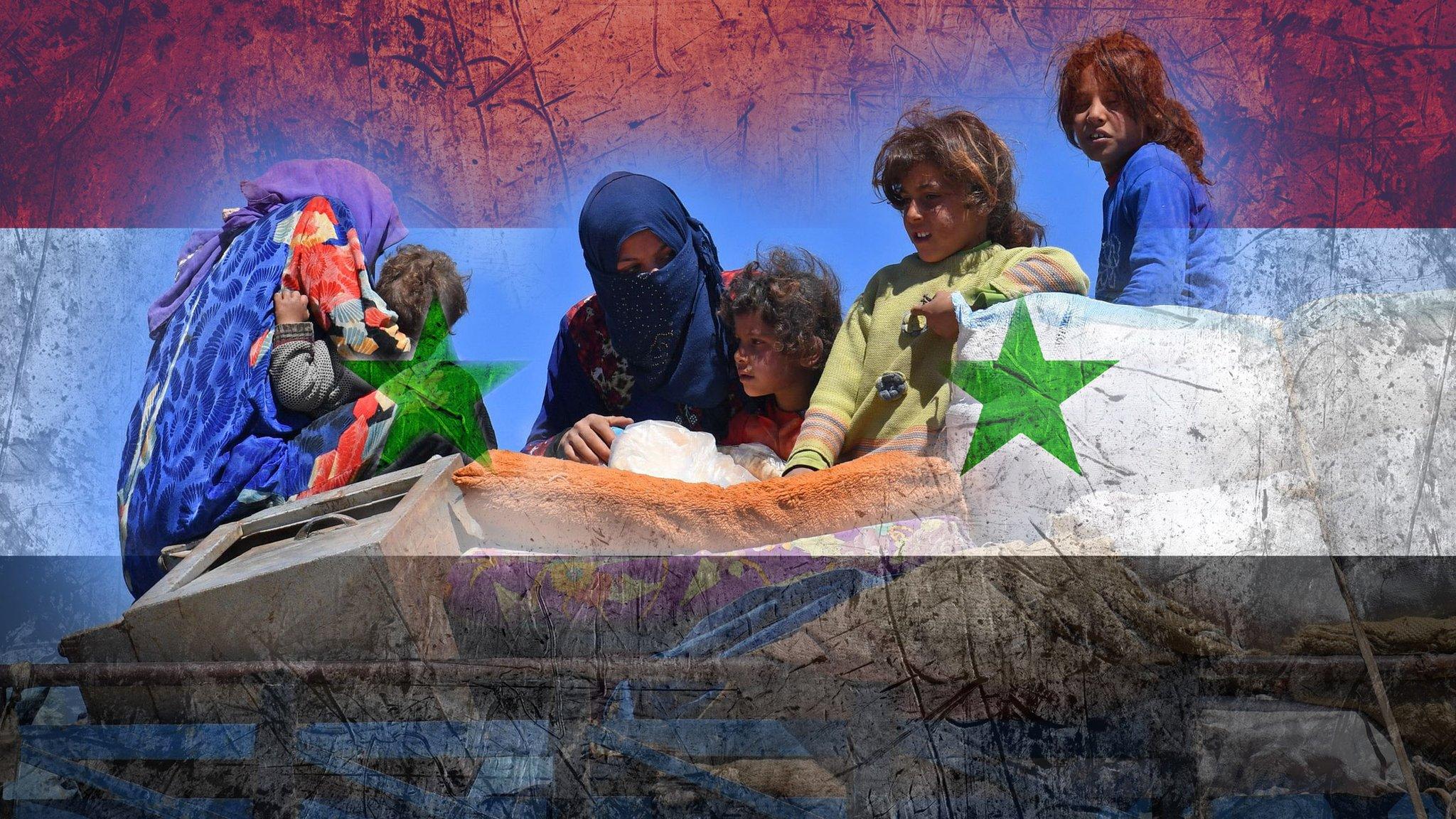
- Published2 November 2017
